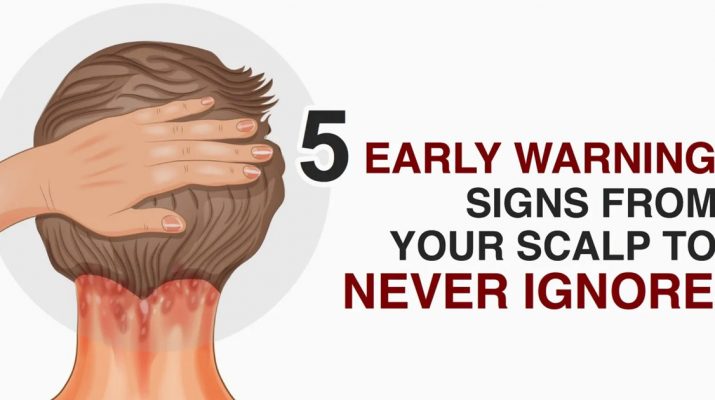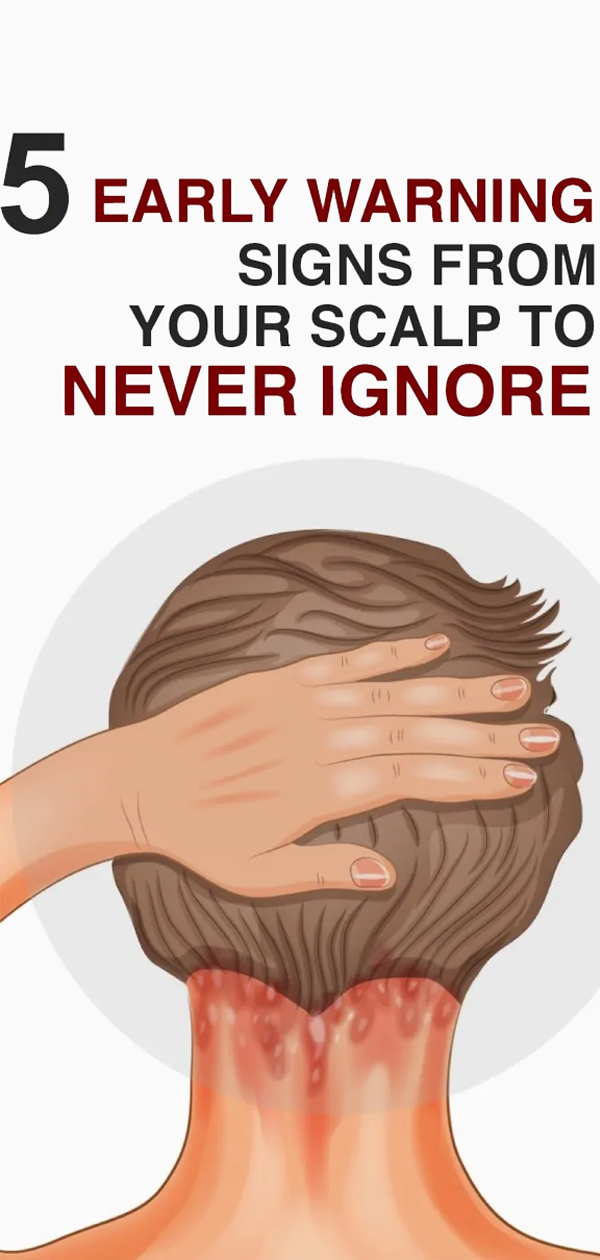The scalp is skin. And just like the rest of our epidermis, our scalp requires monitoring and care.
In this article, we discuss five scalp conditions you definitely shouldn’t ignore.
To wrap things up, we’ll discuss some methods of self-care for the scalp.
5 Warnings From Your Scalp To Never Ignore
1. Itchiness
If your scalp is feeling particularly itchy and sensitive, it may be because you aren’t cleaning it properly. Ideally, you should be cleansing your hair and scalp a minimum of four times per week.
When buying shampoo, look for products that have active ingredients and contain botanical extracts. Stay away from shampoos containing the chemicals paraben, silicone, and sulfate.
2. Breakouts
When we wash our hair, our scalp is submerged in water. If you have sensitive or reactive skin, not only can your scalp get really itchy, it can also break out into acne.
Acne of the scalp generally stems from one of three causes: dead skin cells, product (shampoo/conditioner) buildup, or clogging of the hair follicles.
Dr. Dendy Engelman, the director of dermatologic surgery at Metropolitan Hospital in New York City, recommends using a clarifying shampoo once a week. “Bacterial growth can lead to breakouts if the scalp and hair are not properly cleaned,” Engelman says.
3. Thinning
The thinning of the hair is part of aging. As we get older, the chances of balding, receding or thinning hair increase exponentially.
But aging is not the only cause of thinning hair. The use of chemical treatments; some brushes and styling tools, and individual lifestyle habits can also stimulate hair loss or hair damage.
Supplementing with vitamin B12, iron, protein, and zinc helps to support hair structure and growth. Additionally, these nutrients assist in the breakdown of carbs and fats, which moisturize the scalp and transfer oxygen to hair cells.
4. Scales
Scaling skin is a telltale sign of psoriasis, an autoimmune disorder caused by bacterial infections, stress, or skin trauma – such as the overuse of harsh skin cleansers, aggressive skin cleansing, or bathing too often with hot water.
Plaquing scales, or plaque psoriasis, typically involves patches of rough, red skin and silvery white scales. While there is no cure for psoriasis, it’s symptoms can be mitigated by the elimination or reduction of the following seven foods:
– alcohol
– chili peppers
– dairy
– gluten
– frozen meals
– sugary beverages and foods
– tomatoes
Advanced medical procedures also exist that may help neutralize many of psoriasis’ symptoms. To see what may work for you, schedule a consultation with a dermatologist.
5. Wider Parting Areas
Our hair naturally parts along certain areas of the scalp. Most likely, you’ve combed your hair bi-directionally from this parting area.
You may have noticed that this area is becoming wider. This happens as a natural effect of aging. We may lose density along the frontal hairline (resulting in a wider brow), or the middle of our head, for example.
Treating widening parts often requires advanced dermatological treatments due to underlying cause: the reduction of a certain type of hormone (called ‘FGF5.’)
Natural Treatments For The Scalp
Unsurprisingly, in researching this article, the majority of dermatologists recommended expensive and time-consuming treatments. While these recommended medical techniques may have some merit, they’re beyond the means of most ordinary people.
That said, there are natural treatments (including preventative) for the scalp.
The following is a short list of natural treatments that may help in alleviating some of the abovementioned conditions and symptoms:
– Tea tree oil
– Yoga, Tai Chi, and similar exercises
– Thoroughly cleaning your brushes, combs, and hair
– Using a hair and scalp mask
– Avoiding inflammatory foods (sugar, gluten, dairy, soy, peanuts, alcohol, among others.)
– Avoiding the use of hair chemicals
– Consuming antifungal, anti-inflammatory foods (apple cider vinegar, avocado, banana, coconut oil, flaxseed, garlic, and ginger are best.)


